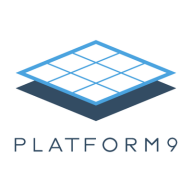

Ubuntu Linux and Platform9 Managed OpenStack compete as enterprise infrastructure solutions. Ubuntu Linux seems to have the upper hand in cost-effectiveness, while Platform9 excels with features and customer service.
Features: Ubuntu Linux offers stability, flexibility, and supports various applications, making it an attractive choice for many users. Platform9 Managed OpenStack provides robust cloud management, automated updates, and hybrid cloud integration, enhancing overall performance.
Ease of Deployment and Customer Service: Ubuntu Linux ensures easy deployment with comprehensive documentation and community support for quick troubleshooting. Platform9 Managed OpenStack simplifies deployment with managed services, reducing operational overhead while providing strong customer service for seamless enterprise cloud experience.
Pricing and ROI: Ubuntu Linux offers lower initial costs through an open-source model with minimal hardware requirements, making it suitable for budget-conscious enterprises. Platform9 Managed OpenStack has higher initial costs but offers greater ROI through advanced features and reduced management complexity, providing long-term value for cloud optimization.
| Product | Market Share (%) |
|---|---|
| Ubuntu Linux | 23.3% |
| Platform9 Managed OpenStack | 26.2% |
| Other | 50.5% |

| Company Size | Count |
|---|---|
| Small Business | 84 |
| Midsize Enterprise | 21 |
| Large Enterprise | 53 |
Ubuntu Linux is an open-source platform known for its robust security, ease of use, and rapid performance. Its lightweight design and comprehensive support system make it ideal for diverse IT environments, providing seamless management and scalability options.
Ubuntu Linux stands out with its open-source nature that allows extensive customization and access to a broad range of free software. It is widely praised for its stability and a vast package repository offering regular updates, enhancing its usefulness across different sectors. The platform is equipped with a lightweight design and excellent community support, making it scalable and easy to manage. While it could improve in areas like Windows software compatibility and user interface refinement, its benefits in enterprise management and development projects are undeniable. Improved documentation, better hardware integration, and enhanced third-party application compatibility are additional focal points to consider.
What are the key features of Ubuntu Linux?
What benefits should be considered from reviews?
Ubuntu Linux is prominently implemented in industries for tasks such as server management, application deployment, and software development. Its resource efficiency and open-source tool compatibility make it a favorite for programming, research, and cybersecurity. Companies frequently use it for web hosting, cloud services, and managing multi-user enterprise solutions.
We monitor all OpenStack reviews to prevent fraudulent reviews and keep review quality high. We do not post reviews by company employees or direct competitors. We validate each review for authenticity via cross-reference with LinkedIn, and personal follow-up with the reviewer when necessary.